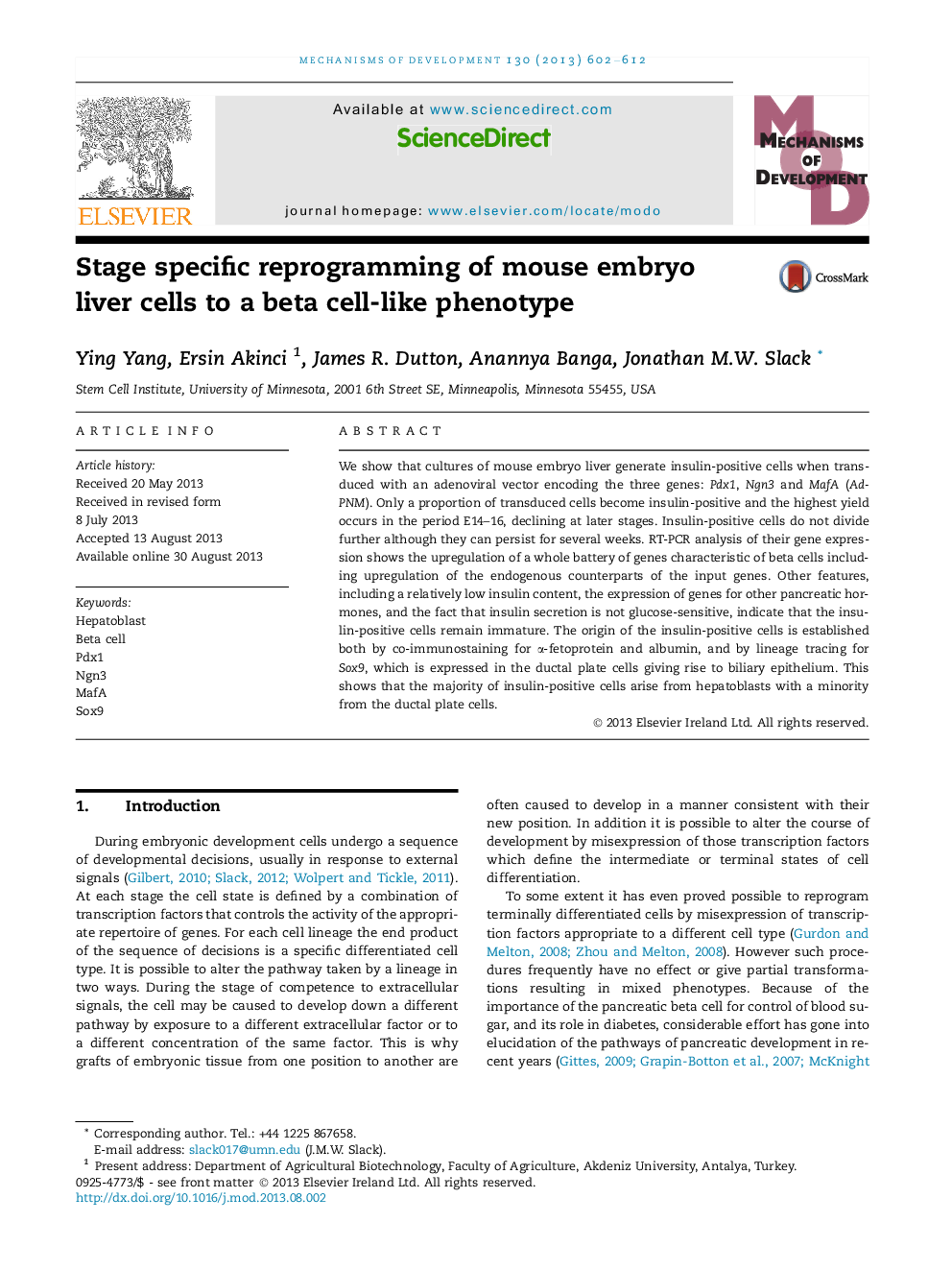| کد مقاله | کد نشریه | سال انتشار | مقاله انگلیسی | نسخه تمام متن |
|---|---|---|---|---|
| 2194548 | 1550581 | 2013 | 11 صفحه PDF | دانلود رایگان |

• Pdx1, Ngn3 and MafA induce insulin-positive cells from mouse embryo liver.
• The induced insulin-positive cells have a phenotype like immature beta cells.
• Their origin is mostly from hepatoblasts with a minority from ductal plate cells.
We show that cultures of mouse embryo liver generate insulin-positive cells when transduced with an adenoviral vector encoding the three genes: Pdx1, Ngn3 and MafA (Ad-PNM). Only a proportion of transduced cells become insulin-positive and the highest yield occurs in the period E14–16, declining at later stages. Insulin-positive cells do not divide further although they can persist for several weeks. RT-PCR analysis of their gene expression shows the upregulation of a whole battery of genes characteristic of beta cells including upregulation of the endogenous counterparts of the input genes. Other features, including a relatively low insulin content, the expression of genes for other pancreatic hormones, and the fact that insulin secretion is not glucose-sensitive, indicate that the insulin-positive cells remain immature. The origin of the insulin-positive cells is established both by co-immunostaining for α-fetoprotein and albumin, and by lineage tracing for Sox9, which is expressed in the ductal plate cells giving rise to biliary epithelium. This shows that the majority of insulin-positive cells arise from hepatoblasts with a minority from the ductal plate cells.
Journal: Mechanisms of Development - Volume 130, Issues 11–12, November–December 2013, Pages 602–612